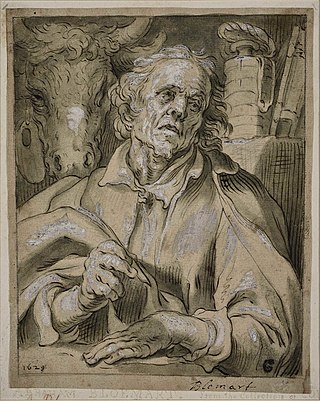See also
- Ashton (given name), a page for people with the given name "Ashton"
- Ashton (disambiguation), a disambiguation page for "Ashton"
Ashton is a surname.

Luke is a male given name, and less commonly, a surname.
Blake is a surname which originated from Old English. Its derivation is uncertain; it could come from "blac", a nickname for someone who had dark hair or skin, or from "blaac", a nickname for someone with pale hair or skin. Another theory, presumably in the belief it is a Welsh patronymic in origin, for which there is no evidence, was that it is a corruption of "Ap Lake", meaning "Son of Lake".
Murray is both a Scottish and an Irish surname with two distinct respective etymologies. The Scottish version is a common variation of the word Moray, an anglicisation of the Medieval Gaelic word Muireb ; the b here was pronounced as v, hence the Latinization to Moravia. These names denote the district on the south shore of the Moray Firth, in Scotland. Murray is a direct transliteration of how Scottish people pronounce the word Moray. The Murray spelling is not used for the geographical area, which is Moray, but it became the commonest form of the surname, especially among Scottish emigrants, to the extent that the surname Murray is now much more common than the original surname Moray. See also Clan Murray.
Fisher is an English occupational name for one who obtained a living by fishing. In the United States, it is also a common anglicization of the German "Fischer" as well as various Ashkenazi Jewish surnames.
Bailey is an English or Scottish surname. It is first recorded in Northumberland, where it was said to have been changed from Balliol due to the unpopularity of Scottish king John Balliol. There appears to be no historical evidence for this, and Bain concludes that the earliest form was Baillie or Bailli . The origin of the name is most likely from Anglo-Norman bailli, the equivalent of bailiff; bailie remains a regional Scottish variant of the term bailiff. Alternatively, it has been suggested that the Norman name may have been locational, derived from Bailleul-En-Vimeu in Normandy.
The surname Collins has a variety of likely origins in Britain and Ireland:
Mason is an occupational surname of Scottish and English origin, with variations also found in Italian and French, historically referring to someone who performed stonemasonry work. The surname Mason was originally brought to England in the great wave of migration following the Norman Conquest of 1066. The name Mason is for a stone-mason. The name was originally derived from the Old English or Old French word masson.
Gavin is a Celtic male given name. It is the Scottish variation of the medieval Welsh name Gawain, meaning "God send" or "white hawk". Sir Gawain was a knight of King Arthur's Round Table. Sir Gawain and the Green Knight is an epic poem connected with King Arthur's Round Table. Gawain beheads the Green Knight who promptly replaces his head and threatens Gawain an identical fate the same time next year. Decapitation figures elsewhere: the Italian name Gavino is the name of an early Christian martyr who was beheaded in 300 AD, his head being thrown in the Mediterranean Sea only later reunited and interred with his body.
Bell is a surname common in English speaking countries with several word-origins.
James is a surname in the French language, and in the English language originating from the given name, itself derived from Old French James, variant form of Jacme, Jame, from Late Latin Jacomus, variant form of Latin Jacobus, itself from Hebrew Yaʿaqōḇ. Notable people with the surname include:
Edwards is a patronymic surname of English origin, meaning "son of Edward". Edwards is the 14th most common surname in Wales and 21st most common in England. Within the United States, it was ranked as the 49th-most common surname as surveyed in 1990, falling to 51st in 2014.
Johnston is in most cases a toponymic surname derived from several places in Scotland. Historically, the surname has been most common throughout Scotland and Ireland.
Grant is an English, Scottish, and French surname derived from the French graund meaning 'tall' or 'large'. It was originally a nickname given to those with remarkable size.
Ferguson is an Anglicization of the Scots Gaelic "Macfhearghus", a patronymic form of the personal name Fergus which translates as son of the angry (one).
Richardson is an English surname most commonly found in North East England. The prefix Richard is a given name popularised during the Middle English period derived from the Germanic ric ("power") and hard ("brave"/"hardy"). The suffix -son denotes "son/descendant of". The names Richard and Richardson are found in records as early as 1381 in Yorkshire, England. There are variant spellings including the Swedish Richardsson. People with the name Richardson or its variants include: Dickson, Dixon.
Simpson is an English/Scottish patronymic surname from the medieval masculine given name 'Simme', a medieval variant of 'Simon'. The earliest public record of the name was in 1353 in Staffordshire, West Midlands region of England.
Graham is a given name in the English language. It is derived from the surname.